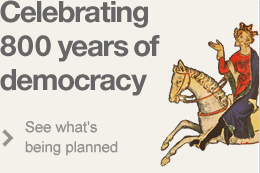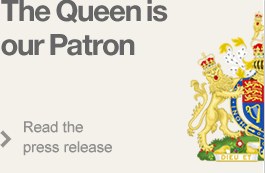The younger William Marshal (c. 1190-1231) was the eldest son of William Marshal (d. 1219), the future Regent, and his wife Isabel, heiress of the line of de Clare earls of Pembroke.
For seven years from 1205 William was detained in King John’s custody, a hostage for his father’s good behaviour, only regaining his freedom in 1212, when John was in need of the latter’s support. In the crisis of 1215 John enjoyed the unswerving support of the elder William, a consistent loyalist, but his son threw his lot in with the opposition, perhaps partly as a result of the experience of his youth and perhaps in part as a family insurance policy. He joined the barons in their muster at Stamford in the spring, and in June was named to the Twenty Five. In the civil war that followed John’s rejection of the Charter he fought on the baronial side, and after Prince Louis’ arrival, was named marshal of his army. Although active in the field, he carefully avoided any direct engagement with his father. A failure to secure satisfaction on a matter of personal concern, however, led him to change sides. He was keen to secure restitution of the castle and lordship of Marlborough in Wiltshire, which had been held seventy years before by his grandfather, John Marshal. When Louis denied him this, he reverted to the royal allegiance. He then fought actively for the new regime, capturing Winchester and Southampton for the royalists and Marlborough for himself, and contributing to the royalist victory at Lincoln in May.
On his father’s death in 1219 he succeeded him as earl of Pembroke and marshal of England, while on his mother’s death in the following year he succeeded to the lordships of Chepstow in South Wales and Leinster in Ireland. William ranked as one of the wealthiest men of his day. Nonetheless, among his portfolio of properties were some to which other important magnates laid claim, principally those of Fotheringhay (Northants.) and Marlborough itself. Over the next five years the Minority government’s attempts to resume these, and assign them to new owners, were to form a major thread in the political life of the day.
A claim to Fotheringhay was entertained by John the Scot, earl of Huntingdon, someone whom the Minority government was keen to satisfy him in the interests of better relations with Scotland. For nearly two years, the Marshal steadfastly refused to give way. In 1220, however, his hand was forced when Llewellyn of Wales attacked his lordship of Pembroke, and he was in need of the Minority government’s assistance. When the justiciar, Hubert de Burgh, came to his aid, he quietly relinquished control of Fotheringhay.
His eventual surrender of Marlborough was brought about by a different means. In 1214 William had married Alice, daughter of Baldwin de Béthune, count of Aumale; Alice, however, had died in 1216. In 1221 the justiciar and the papal legate together came up with the proposal, designed to attach him to the justiciar’s party, that he take as his second wife the king’s sister, Eleanor. The marriage eventually took place in 1224, and the Marshal, as a small price to pay for a royal bride, surrendered Marlborough.
Once these property matters were sorted out, William proved himself an active champion and supporter of royal authority, fighting against the Welsh in 1223 and in Ireland in 1224. In 1230 he joined the king on his expedition to Brittany, to challenge the French, conducting raids in the direction of both Normandy and Anjou.
At the beginning of 1231 he returned to England for the wedding of his widowed sister, Isabella, to the king’s brother Richard, earl of Cornwall. He died suddenly in London, however, on 6 April. Nine days later he was buried by the side of his father in the Temple Church in London, where one of the celebrated group of early effigies is presumably his.
Both of William’s marriages were childless, and his heir was his next brother, Richard, who likewise died without issue, and was succeeded in turn by the next brother Gilbert. In 1241 Gilbert was killed in a tourneying accident at Dunstable and, again being childless, was succeeded by the next brother in line, Walter. He too being childless was succeeded by the last in the brood of brothers, Anselm. When Anselm died without issue in 1245, the line of Marshal earls of Pembroke came to an end, and the vast inheritance was partitioned between the representatives of their five sisters and coheiresses. Among the families which benefited, either then or later, were those of Bigod, Clare, Ferrers, Mortimer, Bohun, Cantilupe, Valence and Hastings.
By Professor Nigel Saul, Royal Holloway, University of London.
Featured Article
I am delighted to have been asked to speak to you this evening. This is an event which marks a number of important themes. As we have heard, we celebrate a major anniversary – the 50th anniversary of the Magna Carta Trust...
Read on...Recent Articles
- Magna Carta's American Adventure
- 800th anniversary of Bristol...
- Bristol 800 concert and...
- Emancipation and Magna Carta
- Terrorism and Tolerance -...
- Magna Carta
- Magna Carta Benches mark...
- ABA Magna Carta Memorial...
Stay updated
If you would like to keep informed about the work of the Magna Carta Trust and our partners, please sign up to the newsletter below.
Become a Supporter
There are a number of significant supporter opportunities. Register your interest early to ensure the widest range of options.
Find out more




